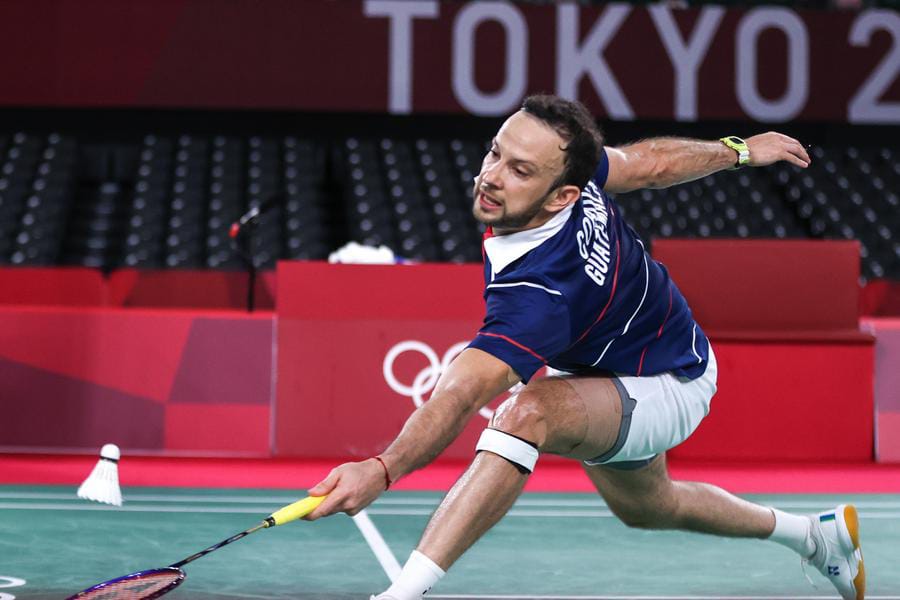Emerging nations' shuttlers chase Olympic dreams, shouldering national hopes
- Publish date :
Sunday - pm 01:58 | 2024-08-04
Alanbatnews -
-- The vibrant atmosphere at the Porte de la Chapelle Arena on Wednesday night bore witness to an inspiring moment in Olympic badminton. Singapore's 10th-seed, Loh Kean Yew, clinched victory with a deft shot to the baseline, concluding Uriel Francisco Canjura Artiga's journey in the Paris Olympics.
For the 23-year-old Salvadoran, this was more than just a match, it marked El Salvador's debut in the Olympic badminton tournament.
"It's an incredible experience. I never imagined being in a place like this, in a huge arena with all the best players in the world," Canjura shared enthusiastically post-game.
Canjura's journey from humble beginning, playing barefoot on a backyard court with lines marked by white ashes, to the Olympic stage is a testament to his resilience and determination.
At 15, he left his family to train in San Salvador, a city once notorious for violence. "It was very dangerous, you couldn't go out with your phone or money. Luckily, they didn't know the value of a badminton racket," Canjura recalled, noting the irony with a chuckle.
Badminton, originally popularized by British expatriates in India, is now dominated by Asian powerhouses like China and Indonesia, with strong competition from European nations such as Denmark. However, a new wave of athletes from Africa and Latin America is emerging, eager to make their mark on the sport's grandest stage.
One such trailblazer is Guatemalan shuttler Kevin Cordon, who reached the semifinals at the Tokyo Olympics, setting a new milestone for his country and region. Though injury forced him to withdraw early from the Paris games, his legacy continues to inspire young players across Latin America, including Canjura. "He is our inspiration. A semifinal at the Olympics is not easy. He did that, so why can I not do the same?" Canjura remarked.
Similarly, Nigerian player Anuoluwapo Juwon Opeyori, who has competed in two consecutive Olympics, has become a beacon of hope for his compatriots.
Hailing from an informal settlement in Lagos, Opeyori was discovered by his coach while playing soccer. Despite lacking proper facilities and training with worn-out equipment, he rose to become a four-time African champion and determined to break the jinx of African badminton at the Olympics, where no African men's singles player has yet reached the knockout rounds.
"We mostly train with used shuttles, which limits the intensity of training," Opeyori noted, pointing out the challenges faced by African players in accessing quality equipment.
Opeyori, the chief captain of Nigeria's Olympic badminton team, faced a formidable opponent in Paris, losing to China's 6th-seed Li Shifeng in the group stage. Despite the setback, both he and Canjura remain undeterred, recognizing their roles in representing and inspiring their nations.
"It's a big responsibility for me, but I'm taking it step-by-step," Canjura said

